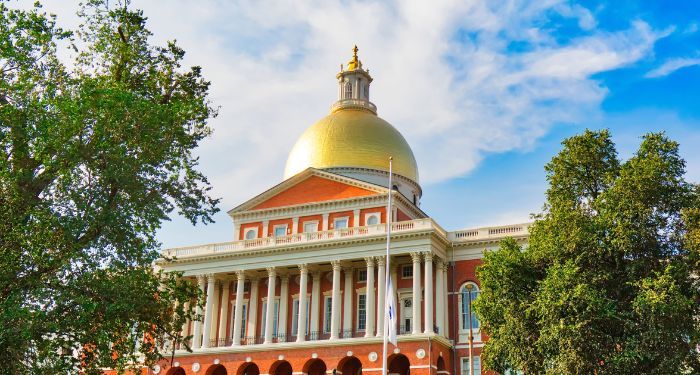Citing the statistics that 20% of Massachusetts librarians reported harassment online or in person, alongside the data that there were more challenges to books in the state in the last year than the prior nine years combined, Representative Frank Moran and Senator Julian Cyr presented companion bills in the state that seek to curb book challenges and protect librarians and educators. House Bill 4229 and Senate Bill 2528 would ensure that books could not be removed from schools or libraries due to personal or political beliefs. The power to determine book selection in the library would lie in the hands of the trained professionals.
Between January and August 2023, the American Library Association reported 17 attempts to restrict access to books in Massachusetts, alongside 27 titles challenged in those attempts. PEN America recorded a school book ban in the 2022-2023 school year in the state, and just weeks ago, police raided an 8th grade classroom in Great Barrington in search of the book Gender Queer.
The bills would codify the trust of library professionals in deciding whether or not books are age appropriate within their collection.
“This bill ensures that public and school libraries can offer diverse and inclusive books, media and materials without fear of political interference. It empowers school librarians and teachers to determine access to age-appropriate materials in schools,” said Cyr.
Books could still be challenged–that is a First Amendment Right–but the decision over whether books will require a school committee to make its determination “based on clear and convincing evidence that the material is devoid of educational, literary, artistic, or social value or is not appropriate for any student in the school,” according to NBC Boston. In other words, the bill would not look at whether the book is not appropriate for some students; it would require looking at whether the book is inappropriate for any student.
The bills also ensure that intellectual freedom is preserved in public libraries. To do this, Massachusetts would require those libraries to include the American Library Association’s Bills of Rights into its selection policies, like the bill passed last year in Illinois. Massachusetts would take it a step further, though, requiring libraries to post their updated materials selection policies publicly.
Public library workers would also receive further protections against retaliation in the event of a book challenge.
“Parents have a voice in public education. A parents’ right to opt their child out of curricula or library materials already exists,” said Andrea Fiorillo of the Massachusetts Library Association, of the bills. “However, when parents, or the activists claiming to speak on their behalf, attempt to deny access to everyone’s children, whose parental rights are being served? This is not parental control; it is authoritarian control.”
All of these measures together offer a wholistic approach to the democratic rights inherent in public institutions. Books cannot be removed without proof that they offer nothing of value–that is codified nationally with the Miller Test–while permitting the average person complete transparency about the materials selection process through ready availability of policies. Librarians and educators are highly trained professionals, and these bills emphasize that they act with their experience at the forefront.
Parents have always had rights, and these bills reassert the fact that parents are responsible for guiding their own children over what is or is not appropriate for them.
Massachusetts is home to Congressional Representative Ayanna Pressley, whose proposed Books Save Lives Act was introduced to Congress in December.
If you’re a Massachusetts resident, you can find out whether or not your representatives are in support of the bills here and here. Take ten minutes to write them in support of their cosponsorship or to encourage those who have not signed on to do so. You have a wealth of statistics at your fingertips, including those found in the recent Book Riot x Every Library Institute research about how much libraries are supported by their communities.
